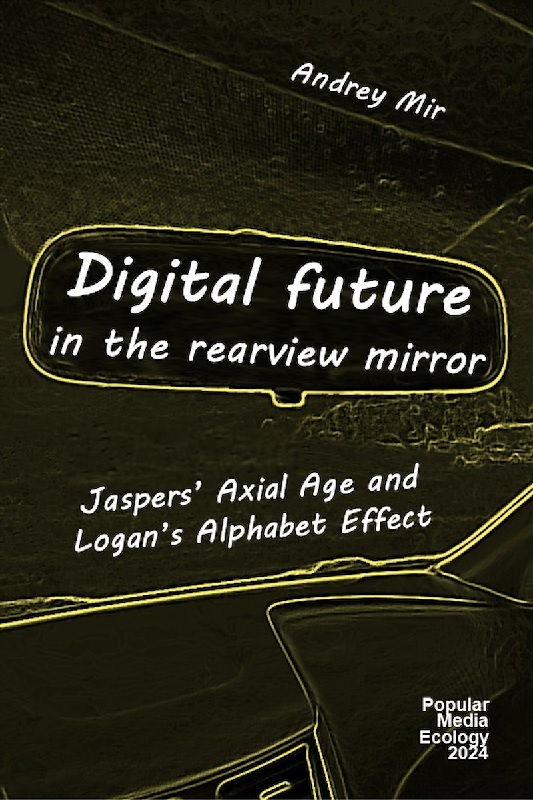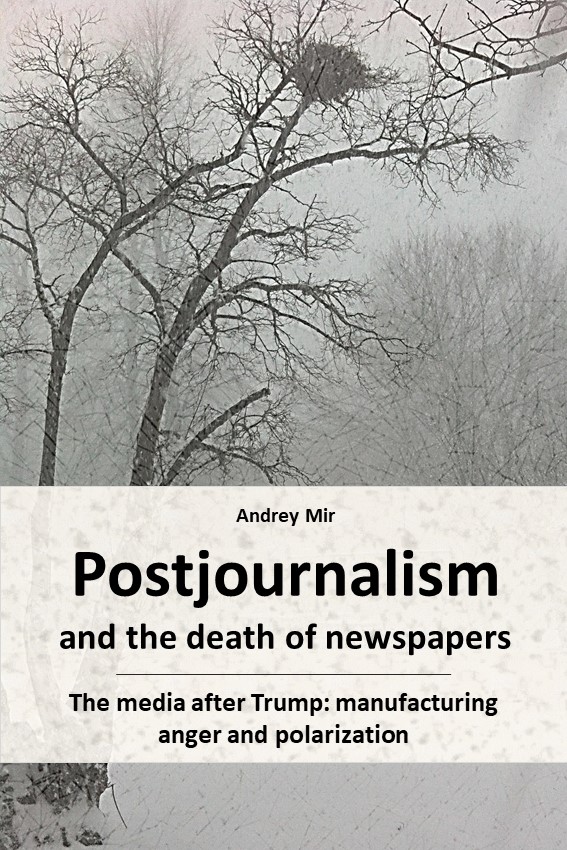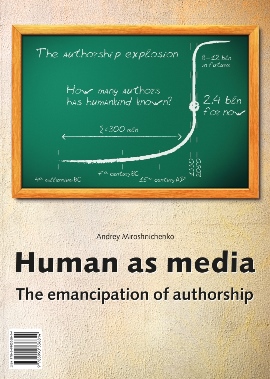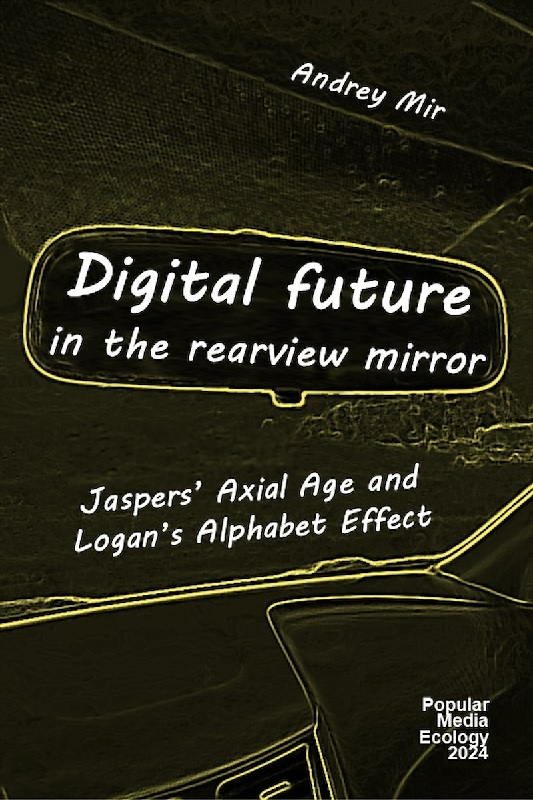Is the rise of digital media causing the fall of literacy? A review of Andrey Mir’s Digital Future in the Rearview Mirror: Jaspers’ Axial Age and Logan’s Alphabet Effect in City Journal, excerpts.
Despite the hopes and fears invested in the digital revolution, the world looks much the same, but a bit worse (to borrow a phrase from French novelist Michel Houellebecq). But what if the advent of universal, always-connected communications devices has been far more consequential than either techno-utopians or the most jaundiced Luddites could have realized—just not in the way they imagined?
Media ecologist Andrey Mir, a sometime contributor to City Journal, advances just such an argument in his fascinating new book, Digital Future in the Rearview Mirror. The upshot of Mir’s analysis is that, over the past two decades, civilization has undergone a shift comparable with that experienced over the much longer period during which literacy displaced orality. The spread of digital communications technologies, he argues, has put a definitive end to what Marshall McLuhan called the “Gutenberg galaxy” dominated by literacy—already eroded in McLuhan’s own time, especially by the emergence of television. Succeeding it is a new hybrid Mir calls “digital orality,” which is “simultaneous and impulsive like instant oral exchange but recordable, shareable, and transportable like writing and print.”
The characterization of our current media dispensation as a variant of orality may seem counterintuitive. After all, much of our communication now occurs in textual form: emails, tweets, WhatsApp messages. This might seem to restore literacy to its position of primacy after a post-literate hiatus in the late twentieth century, when the television and the telephone held sway. But for Mir, the opposition between orality and literacy “is not about ‘listening versus reading’ but rather about ‘immersion versus detachment.’” The crucial effects of literacy, in his account, are to separate vision from the other senses, while imposing linear temporal succession on the mind through the flow of text on the page. In orality, by contrast, all manner of sensory input intermingles in an immersive space, habituating the mind to processing varied sense data simultaneously. Digital communication, embedding text in a hodgepodge of graphics and sounds, resurrects this basic “oral” situation.
The historical emergence of literacy, in the account Mir adapts from media theorists Walter Ong and Robert Logan, cultivated sensory detachment from the surrounding environment. This posture, in turn, encouraged the development of qualities that included abstract thinking and individualism. This was especially true of alphabetic literacy, per Logan, because the alphabet operates at the greatest remove of abstraction from spoken language, parceling it into arbitrary sound units that get reassembled on the page. Logan’s 1986 book The Alphabet Effect, one of Mir’s main reference points, argues that the emergence of the first recognizable philosophical and proto-scientific thinking in ancient Greek society was possible only because of the prior introduction of the alphabet, which had reset its users’ default cognitive settings.
If literacy made the major achievements of the modern world possible, then its undoing would seem to call their future into question. As Mir puts it, borrowing terminology from McLuhan, the new media regime “reverses” many of the attributes of literate society, while “retrieving” previously obsolesced qualities of the prior dispensation: orality. <…>
Mir’s more original contribution is his synthesis of the media ecology of McLuhan, Ong, and Logan with an unjustly neglected hypothesis developed by the philosopher Karl Jaspers in The Origin and Goal of History. Jaspers’s 1949 book is best known for introducing the notion of the “Axial Age”: a “spiritual process,” as he describes it, “that occurred between 800 and 200 B.C.,” in which “[m]an, as we know him today, came into being.” The basis of this supposition is the enigmatic fact that the civilizations of China, India, the Middle East, and Greece attempted to articulate abstract philosophical accounts of the nature of humanity and its place in the universe, as well as universal moral precepts, within the same period, without much communication with one another. <…>
If rationality, objectivity, and individualism are downstream from the acquisition of alphabetic literacy, the consequences of a “reversal” of the latter and concomitant “retrieval” of pre-literate cognitive norms are profound. This is indeed Mir’s dramatic take on the digital revolution: “The essence of today’s Axial Decade,” he says, “is the reversal of Jaspers’ Axial Age.” One might expect him to derive a prognosis of impending civilizational collapse from this bold assertion, but Mir is no Jeremiah. He does insert some of his tweets within the flow of his text, in effect drawing upon the communicative forms of digital orality—much as McLuhan, in his time, made a deliberate effort to present his ideas about TV on TV. But Mir largely takes the posture of cool detachment that he associates with literacy. <…>
Read the full review in City Journal:
The Death of Gutenberg
Is the rise of digital media causing the fall of literacy?
Geoff Shullenberger, Apr 26 2024
Read also: Andrey Mir Takes on World History. In Mir’s big new book, ‘Digital Future in the Rearview Mirror,’ he explains how media made history and may soon end it. Martin Gurri, a review in Discourse, February 20, 2024.
Buy Digital Future in the Rearview Mirror on Amazon
See also books by Andrey Mir:
- Digital Future in the Rearview Mirror: Jaspers’ Axial Age and Logan’s Alphabet Effect (2024)
- Postjournalism and the death of newspapers. The media after Trump: manufacturing anger and polarization (2020)
- Human as media. The emancipation of authorship (2014)



Categories: Digital Future in the Rearview Mirror, Digital orality, Future and Futurology, Immersive experience, Marshall McLuhan, Media ecology, Media literacy, Singularity and Transhumanism


Leave a comment